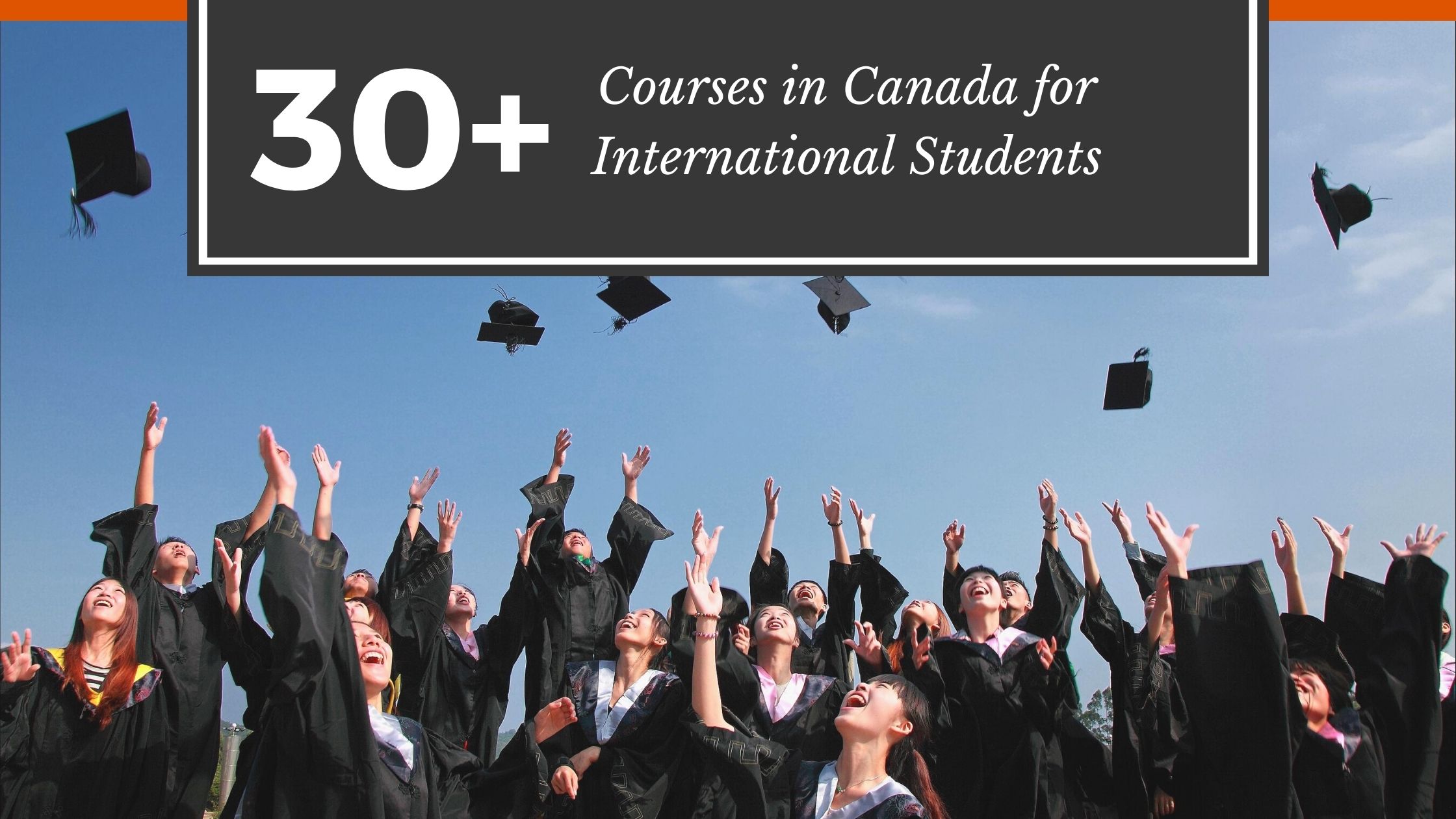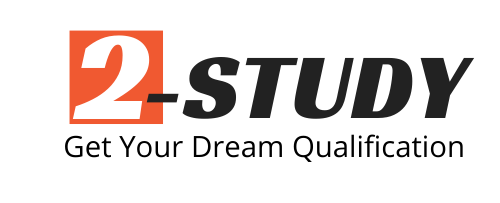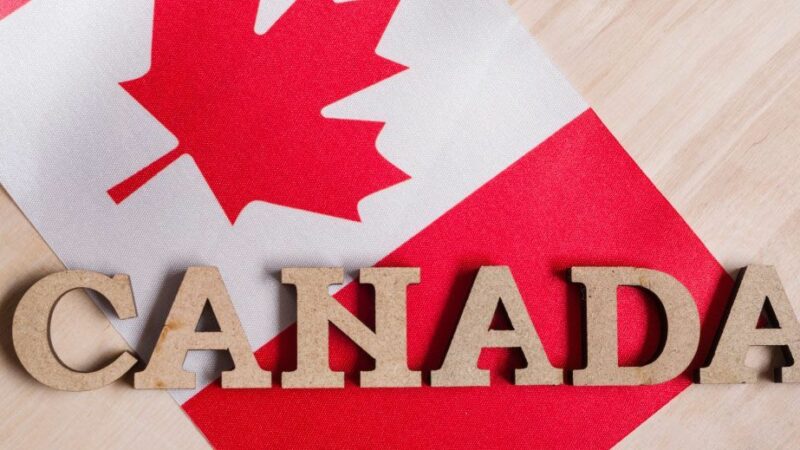30+ Cheapest Courses in Canada For International Students

When you search for the cheapest courses, colleges, and universities in Canada most information you find doesn’t even give you the exact numbers.
But in this article, we’ll give you the cheapest courses, colleges, and universities in Canada for international students in 2021 with the exact tuition fees you’ll be paying per year.
Degree vs Diploma: Which is Right for you?
Canada offers many different levels of education. And we’re going to break down each one and tell you what type of certification you can receive.
Here is the list of education programs in Canada:
- Bachelor’s Degree
- Associate Degree
- Post Graduate Diploma
- Advance Diploma
- Master’s Degree
Bachelor's Degree
The first is bachelor’s degrees which is the standard undergraduate education in Canada. Typically these take about four years but sometimes they can just take only three.
Now undergraduate programs are at both colleges and universities and the result is a bachelor’s degree.
Bachelor’s degree programs offer the best of both worlds. You’re getting theoretical knowledge but also practical experience in your field.
Because many of these programs have an internship or a co-op. And it’s a great way to apply your skills network and also get your foot in the door in your field.
Now admission into a bachelor’s degree program is the completion of secondary school also known as high school.
Associate's degree
The next is an associate’s degree and this takes two years to complete.
An associate’s degree allows students to begin their studies at one university or college and then transfer into third-year coursework at a different school.
If you transfer to a college you will most likely receive a diploma or an advanced diploma. And if you transfer to a university you most likely receive a degree.
Post Graduate Diploma
Post Graduate Diplomas take one to two years to complete at Canadian colleges and universities.
The curriculum is designed to give students more hands-on practical experience in their field and spend less time on theoretical knowledge.
Anyone can apply for a diploma program at a Canadian College as long as they’ve completed a Bachelor’s degree.
Advanced diplomas
Advanced diplomas are often usually taken out of college as well and they take about three to four years to complete.
These programs are more special in advanced versions of diplomas.
And the reason is that they usually have a co-op or an internship this is a great way to apply your skills network and also get some job experience all while you study.
Master's Degree
Master’s degrees take about one to two years to complete depending on your field of study.
Master’s programs are highly specialized postgraduate studies so you’re likely to take one after you’ve already completed a bachelor’s degree.
What’s great about master’s programs is that they often have a research or thesis project.
Now, these projects are long-form and they kind of allow you to learn more and focus on one specific topic in your field.
Regular MBA vs Executive MBA
Just a quick distinction between what is a regular MBA program and what is an Executive MBA program.
A regular MBA program is for students typically who get in and want to do a full-time MBA program. They go through entrance exams, clear all of that, and study full-time. These programs in Canada could be even up to 18 months.
Executive MBA programs on the other hand are for people taking a mid-career break coming back with some element of work experience. And they’ll not perhaps able to attend classes regularly so these tend to be weekend classes. This is very expensive and it also lasts for two long years.
How to select colleges to get PR in Canada?
Let’s discuss something that is very important for all the international students planning to study in Canada. You all have a lot of questions.
- which college to choose in Canada?
how to choose your college? - what are the criteria that you should take into consideration
- when you are selecting a college for yourself?
- and what are the requirements of that particular college?
Let’s see what are those requirements and I will guide you through the entire process of finding a suitable College for yourself in Canada.
First of all, it is very clear that when you travel to Canada for your further studies, your plan is to work in Canada and get a postgraduate work permit. Therefore it is very important to check if the college you are choosing offers you a postgraduate work permit.
Key Points
- Find a public college for yourselves because it is always good to go to a public college. Most public colleges are designated learning institutes.
- And even if it is a private college, your study program should be 900 hours or longer
Designated learning institution
You need to get enrolled in a college which is a designated learning institution that is DLH.
You can check the Canada.CA website. This is the government of Canada’s official website and here you will be able to find the list of designated learning institutions.
You can find the designated learning institution where you are planning to study here. First of all, you will have to select the province where you are planning to go to.
For example, in case it is Quebec you can find the list of designated learning institutions here.
If an agent advises you to join a particular school or college in Canada. You should check its designation status. Also, a lot of times students do have the question:
What if the designated learning institution loses its designation status?
Yes, it happens you might have heard a lot of times that a particular Institute has been blacklisted or this College has been blacklisted.
Blacklisted actually, means that the designated learning institution has lost its designation status.
what happens in this case? what if you are already in that particular institution and it loses its designation status?
Be calm and relax.
There is not going to be any effect on you because you took admission to that particular Institute before it lost its status.
If you are just into the first semester or you can definitely complete your program with full-time status. Fulfill all the requirements like a full-time student completing all the credits. You will be eligible for a post-graduate work permit.
You have to meet all the program requirements and also meet the conditions of your study permit. It says that you can work no longer than 20 hours a week. If you meet all these conditions you will be eligible for a post-graduate work permit even if your Institute has lost its designation state.
Course Duration
Secondly, apart from a designated learning institution, you should have a course or a program in this institute that is at least 8 months long. If you have any program or certificate which is less than 8 months, you will not be eligible for a postgraduate work permit.
And your study program should lead to a degree diploma or a certificate. It also includes that you should maintain full-time status as a student throughout your studies. Throughout your studies apart from the summer break or some other breaks, you should be a full-time student.
For any reason, if you drop the course or you had to go back to your country for some emergency. You have to clarify it to the Institute as well as the government when you are applying for your postgraduate work permit.
Cost of Study in Canada
Canada has been consistently ranked in the top ten of the world’s best places to live in. And it’s also one of the best places to study in.
Let me tell you everything you need to know about the cost of studying and living in Canada as you go there being an international student.
We’ve divided the content into four portions.
- the first is going to be undergraduate and graduate tuition fee divided into the various fields of study and also broken down into the different provinces of Canada
- the second category of information that I’m going to give you is the cost of living
- third I’m going to give you the most affordable schools in Canada and I’m also going to tell you about the tuition fee charged by some of the top-ranked universities
- and finally, we’re going to do a cost comparison of Canada with the USA, UK, Singapore, Australia, and New Zealand.
Education System in Canada
The most distinctive feature of the Canadian higher education system is that each of their ten provinces is responsible for their own education system.
So you might find some variation between one province and the next depending on where you choose to study.
Also just as a note, typically undergraduate degrees in Canada can be completed anything between three years and four years, unlike the US where you would complete your undergraduate degree in a minimum of four years.
Postgraduate degrees could be completed between one to three years depending on which program you take.
Bachelor's or Undergraduate Fees
The undergraduate tuition fee that you pay as an international student in Canada. Now typically an average undergraduate tuition fee is in the region of 25,000 Canadian dollars. Here is the tuition fees per year of undergraduate/ bachelor’s degree program in Canada:
- Arts, humanities, Social Sciences, agriculture – CAD 22,000
- Architecture- CAD 25,000
- BBA program- a Business Administration program – CAD 26,000
- Undergraduate law program- CAD 30,000
- Pure Sciences, Computer Sciences, mathematics and engineering programs – CAD 30,000
Note: The amount mentioned is the average tuition fee per year. The exact price varies from institute to institute.
Arts, Humanities, Social Sciences, Agriculture
The arts, humanities, Social Sciences, agriculture could be a little cheaper. The average tuition fee for those could be in the region of 22,000 Canadian dollars for annum.
Undergraduate law program
A law degree now I know the law is most often a postgraduate degree. But like I said some of the provinces have different education systems and they might offer you an undergraduate law program as well.
So if they do when an undergraduate law program would be charged at about 30,000 Canadian dollars per annum.
Science and Engineering program
Looking at the pure Sciences, Computer Sciences, mathematics and engineering programs. These are also costed at about thirty thousand dollars.
BBA program
And Business Administration now mind you this is not an MBA we’re still at the topic of undergrad so this is like a BBA program- a Business Administration program would cost you about twenty-six thousand Canadian dollars per annum.
Postgraduate/ Master's Degree Fee
Let’s look at the postgraduate cost per annum in Canadian dollars for international students in Canada.
The average cost is about 16,000 Canadian dollars.
- Arts and humanities continue to be cheaper.
- But Social Sciences etc. tend to be in the region of 13,000 to 14,000 CAD per year.
- A law program at graduate school will be about 16,000 CAD.
- Now a pure Sciences graduation program, Computer Sciences, mathematics, engineering could be anything between CA$15,000 and CA$18,000.
- Medicine, pharmacy, dentistry, veterinary medicine could be anything between CA$15,000 to CA$21,000
- the most expensive programs are the MBA programs. a regular MBA program could cost you around CA$40,000/year.
- and an Executive MBA program could cost you around CA$60,000/year. As it is all over the world the Executive MBA programs tend to be the most expensive program.
Tuition Fee in Popular Province of Canada
Let’s break up the undergraduate tuition fee and graduate tuition fee based on the different provinces in Canada.
The top three universities in Canada are
- McGill University in Montreal,
- the University of Toronto in Ontario,
- and the University of British Columbia in Vancouver.
These three provinces also tend to be the most popular areas that students tend to go into the study.
Ontario
So looking at the costs in these three provinces, Ontario is the most expensive. The bachelor’s tuition fee averages about 35,000 Canadian dollars per year. And the master’s degree tuition fee is about 22,000 Canadian dollars per year.
Montreal and British Columbia
In Montreal, a bachelor’s degree tuition fee of about CA$22,000/year. The average amount of master’s tuition fee is about CA$15,000/year.
British Columbia is a bit expensive than Montreal. Here the average cost of a bachelor’s tuition fee is CA$25,000/year. On the other hand, a master’s degree will cost you CA$17,000/year.
Lowest cost province in Canada
The lowest cost province in Canada is Newfoundland and Labrador. The average cost of tuition fee for bachelor’s degree could be as low as CA$12,000/year.
You will also find that master’s program here are much cheaper than other provinces. The master’s tuition fee could go low enough to 4,000 CAD per year.
Cost of living in Canada
Let’s talk about the cost of living in Canada.
The Average Accommodation & Food Costs in Canada can reach upto CA$8,890 Per Year
Under your Canadian visa, you’re required to maintain 10,000 CAD as your living expenses per year.
But my suggestion to you is that CA$10,000 might be a little less for you. The average number that’s more realistic is about 15,000 CAD for a year and this includes:
- your cost of stay
- your food
- your books
- your personal expenses
- your transportation
- your health insurance
- mobile phones/ communication cost
- and some of the other basic requirements that you will have.
In fact, the University of British Columbia suggested a minimum living cost in Canada. And that amount is CA$15,500. Remember it does not include about a $900 mandatory health insurance policy.
Now Vancouver is one of the most expensive cities to live in. Therefore you’ve to consider that aspect as well. Anything between CA$15,000 to about CA$16,400 looks like a good number for living costs in Vancouver.
Cost of studying in Canada vs Other Countries
In this section, we’re going to do a comparison of cost of studying in Canada, US, UK, Australia, New Zealand and Singapore.
Canada
Looking at Canada first. Canada’s perhaps of the lower end of all these countries. We said that the average cost of a bachelor’s program is 40,000 CAD per year.
And if I complete the degree program in three years my total cost of doing an undergraduate program in Canada is about 120,000 CAD.
New Zealand
In New Zealand, the average cost of an undergraduate program is NZ$ 35,000 per Year.
But since New Zealand offers a four-year bachelor’s program, the total cost of the undergraduate program is about NZ$ 140,000. It is more than what it costs us to go to Canada.
Australia
The country that is marginally more expensive than Canada and New Zealand is Australia.
The undergraduate tuition fee in Australia for annum is AU$ 35,000 per year. As Australia also the undergraduate degree is for four years, your total cost works out to AU$ 140,000.
Singapore
The numbers of Singapore and Australia look pretty much the same.
You’ve got Singapore dollar 35,000 being your average undergraduate cost per year. And with four years program, the cost ends up to Singapore dollar 140,000.
Australia and Singapore are similar in cost. On the other hand, Canada and New Zealand tend to be at the lowest end and similar.
UK
Let’s look at the cost of studying in the UK.
In the UK the average cost per year of an undergraduate program is about 30,000 pounds. In the UK once again the undergraduate degree is a three-year program.
So the total cost would work out to about 120,000 euros in total.
USA
Now coming to the Big Daddy which is the USA.
Roughly the cost per year of an undergraduate degree in the US for international students is about $55,000 per annum. And the total cost over a four-year period is $220,000.
The Most affordable universities in Canada (2021)
Here is a list of the most affordable universities in Canada. The tuition fee for an undergraduate program at some of these universities ranges from CA$5,000 to about CA$12,000 per year.
- Memorial University of Newfoundland – tuition fees: 2,150 – 11,460 CAD/year.
- University of Regina – tuition fees: 1,715 – 20,050 CAD/year.
- Royal Roads University – tuition fees: 3,750 – 27,600 CAD/year.
- University of Saskatchewan – tuition fees: 4,110 – 24,000 CAD/year.
Also the list of top universities in Canada with average tuition fee per year.
- Simon Fraser University- Average fees: $3,500 – Website: www.sfu.ca
- Memorial University of Newfoundland- Average fees: $5,000 – Website: www.mun.ca
- Canadian Mennonite University- Average fees: $7,900 – Website: www.cmu.ca
- Brandon University- Average fees: $6,000 – Website: www.brandonu.ca
- University of New Brunswick – Average fees: $7,000 – Website: www.unb.ca
- University of Saskatchewan – Average fees: $7,500 – Website: www.usask.ca
- Athabasca University- Average fees: $9,000 – Website: www.athabascau.ca
- University of Prince Edward Island – Average fees: $10,000 – Website: www.upei.ca
- University of Manitoba – Average fees: $11,000 – Website: www.umanitoba.ca
- University of Alberta – Average fees: $11,500 – Website: www.ualberta.ca
Canada Universities with No Application Fee
Here is the list of universities where there is no application fee charged.
Royal Roads University
Website: http://www.royalroads.ca/
Royal Roads University is one of the universities in Canada without an application fee. If you are applying for the university online you won’t be charged an application fee. Your application will be given quality attention to ascertain if you are eligible for admission.
Royal Roads University is a public University located at Colwood, British Columbia. They offer undergraduate, graduate, and doctorate courses for locals and international students.
Quest University International
website: https://questu.ca
Quest University International also charges no application fee for International students applying online before the application deadline. They charge a fee to accept applications coming after the application deadline.
Quest University is a privately funded institute located in Squamish, British Columbia. The institute is small, only housing about 700 students yearly. They focus most of their specialities on the Liberal, Arts and Sciences.
Redeemer University College
Website: https://www.redeemer.ca
Redeemer University also offers a free application for international students but just like Quest University, they also charge for applications that are submitted after the application deadline. This is to say that if you want to apply for the university without paying any application fee then you have to apply on time.
Redeemer University is located in Ontario, Canada. It is a kind of ‘religious’ university in Canada and they combine academics with religious activities.
Booth University College
Website: https://boothuc.ca/
Booth University College is another famous institute in Canada without an application fee. But they request a fee of 500CAD from applicants who have been considered for admission. This is for the student to secure his or her admission slot. It is only required from applicants who have already scaled through and have been considered for admission.
30+ Cheapest courses to study in Canada for International Students
Canada is one of the most sought-after countries to study abroad both for undergraduate and post-graduate. Currently, there are more than 300,000 international students in Canada.
So what makes Canada such an attraction for international students. Let’s have a quick look. The main factors are
- High-quality education and affordable education with world-class resources.
- You have a variety of courses to choose from with a flexible index.
- You get multicultural exposure that is safe and student-friendly.
- Canada promises good living standards and plenty of job opportunities for international students.
- The easy and straightforward work permit and immigration rules in Canada help you get PR in no time.
Now we will move to our main agenda top courses to study in Canada for jobs and immigrations and here is the list.
Computer Science and IT
IT professionals are in huge demand in Canada. IT project managers and software engineers turn out to be among the topmost in-demand occupations in Canada.
In recent years, the IT industry offers some of the most competitive salaries in the country. The average annual salary is around 87,500 CAD.
Computer Science and IT jobs & Salaries
Some of the most in-demand job functions in the IT sector in Canada are:
Software Developer: C$49k – C$89k
Data Scientist: C$54k – C$104k
Data Analyst: C$41k – C$77k
Web Developer: C$39k – C$75k
Programmer Analyst: C$44k – C$82k
Information Security Analyst: C$50k – C$96k
Information Technology (IT) Manager: C$58k – C$118k
Cheap Courses in Computer Science & IT
Post Baccalaureate Diploma in Computing Science – Simon Fraser University
- Duration: 1 year
- Tuition Fee: CAD 5,505
MSc in Computer Science – Memorial University of Newfoundland
- Duration: 2 years
- Tuition Fee: CAD 3,222
Diploma in Technology – McMaster University
- Duration: 1 year
- Tuition Fee: CAD 8,508
M.Sc in Computer Science – University of Regina
- Duration: 2 years
- Tuition Fee: CAD 7,534
Business and Finance Courses
With a degree in finance, you will have an excellent understanding of the functions and applications of financial markets.
Economics is another subject with great career opportunities. You will learn about forecasting the economy and contribute to the monetary policies.
Finance and economics allow you to develop a wide range of transferable skills besides skills in the code domain. These are the most sought after job functions after finance and business courses in Canada:
- Asset Management
- Broking
- Investment Management
- Banking
- Insurance
- Accounting
Cheap Courses in Business & Management
Master of Arts in Economics – Memorial University of Newfoundland
- Duration: 1 year
- Tuition Fees: CAD 6,654
Master of Employment Relations – Memorial University of Newfoundland
- Duration: 1 year
- Tuition Fees: CAD 3,717
Bachelor of Business Administration – Canadian Mennonite University
- Duration: 4 years
- Tuition Fees: CAD 7,938
M.Sc. In Business Administration – University of Northern British Columbia
- Duration: 2 years
- Tuition Fees: CAD 4,849
MA in Development Economics- University of Northern British Columbia
- Duration: 2 years
- Tuition Fees: CAD 4,849
Core Engineering Courses
Central Canada is currently the best job market for engineers. Due to their strong manufacturing presence, almost one-third of the new jobs were created in or around Toronto.
Following Toronto, Edmonton and Calgary are the next strongest market for engineers with skills in AutoCAD, CATIA, or other industry-standard.
The median annual salary for engineering graduates in Canada is CA$ 81,700.
Here are the topmost in-demand engineering job categories and courses in Canada:
- Mechanical
- Civil
- Electrical-Electronics
- Chemical
- Industrial & Manufacturing
- Engineering Management
Cheap Courses in Engineering
Master of Engineering in Computer Engineering – Memorial University of Newfoundland
- Duration: 2 years
- Tuition Fees: CAD 3,222
Master of Engineering in Civil Engineering – Memorial University of Newfoundland
- Duration: 2 years
- Tuition Fees: CAD 3,222
Master of Engineering in Electrical Engineering – Memorial University of Newfoundland
- Duration: 2 years
- Tuition Fees: CAD 3,222
Master of Engineering in Mechanical Engineering – Memorial University of Newfoundland
- Duration: 2 years
- Tuition Fees: CAD 3,222
Master of Engineering in Oil and Gas Engineering – Memorial University of Newfoundland
- Duration: 2 years
- Tuition Fees: CAD 3,222
Physical & earth sciences and renewable energy
Renewable energy is an important source of energy in Canada. The country generates the majority of its electricity from hydroelectric dams.
Canada has been in a fortunate position as it is an abundant amount of biomass products available. Hence apart from wind energy and solar energy, Canada is actively investing in the bioenergy sector as well.
Consequently, this is also creating excellent career opportunities for many people. Especially for students from earth sciences and energy backgrounds as well as other fields like forestry and biotechnology.
Some of the top courses to study are
- Physics & Astronomy
- Medical Physics & Nanotechnology
- Geoscience & Oceanography
- Oil & Petroleum Engineering
- Mining
- Geology
- Geo-informatics
- Renewable Energy
Cheap Courses in Science
Master of Science in Physics -Simon Fraser University
- Duration: 2 years
- Tuition Fees: CAD 5,290
Master of science in mathematics – Simon Fraser University
- Duration: 2 years
- Tuition Fees: CAD 5,505
Master of science in chemistry – Simon Fraser University
- Duration: 2 years
- Tuition Fees: CAD 5,614
MSc Molecular Biology and Biochemistry- Simon Fraser University
- Duration: 2 years
- Tuition Fees: CAD 5,505
Agricultural Sciences and foresters
The increase in the global population has been causing several problems including climate change, global warming, and food scarcity.
Agricultural science can clearly play a key role in solving those problems. Therefore like other countries, the job prospects for agricultural science and forestry are excellent in Canada.
Typical job positions include
- agricultural scientists
- agronomist
- forestry consultants
- and agriculture consultants
Cheap Courses in Agricultural Sciences
M.Sc Environmental Science – Memorial University of Newfoundland
- Duration: 2 years
- Tuition Fees: CAD 3,222
B.A. in Geography – University of Manitoba
- Duration: 4 years
- Tuition Fees: CAD 17500
MSc in
Environmental Studies- University of Victoria
- Duration: 2 years
- Tuition Fees: CAD 7176
M.Sc. in Geological Sciences – University of Saskatchewan
- Duration: 2 years
- Tuition Fees: CAD 6536
Biotechnology and Medicine
As long as there is life on our planet the importance of medicine, biological sciences, biotechnology, and pharmacy will always be there.
The most in-demand courses in Canada are
- Biological Sciences
- Biotechnology
- Pharmacy
- Nursing
- Medicine (Specialist Physicians) and
- Dentistry
Cheap Courses in Medicine
Certificate in Health and Fitness Studies – Simon Fraser University
- Duration: 1 year
- Tuition Fees: CAD 16076
Master in Nursing- University of Manitoba
- Duration: 4 years
- Tuition Fees: CAD 8,911
MSc in Physical Therapy – University of Alberta
- Duration: 28 Months
- Tuition Fees: CAD 9,670
Master of Science in Health Sciences (Management)
- Duration: 2 years
- Tuition Fees: CAD 6,045
Mass communications
With the rise of digital media, social networking sites, and online marketing, the demand for such professionals in those areas is also increasing exponentially.
New Age career paths like digital marketing and digital and interactive designs are taking over their traditional ones. Additional new technology and banking sectors are also actively looking for creative talents like UX and UI.
The top courses in mass communication are
- Digital Media
- Advertising
- Marketing
- Public Relations
- Journalism
- Interactive Media
- UX/UI Design
- Visual Effects and Animation
- Creative & Graphic Design
Cheap Courses in Mass Communication
Master of Arts in Communication – Simon Fraser University
- Duration: 2 years
- Tuition Fees: CAD 5,400
Bachelor of Arts in Communication (Media and Journalism)- Canadian Mennonite University
- Duration: 4 years
- Tuition Fees: CAD 7938
MBA
Management consulting, banking, investment, finance jobs are currently under the skill shortage category in Canada.
MBA graduates with specializations in big data or analytics are also in extreme demand. This is due to the increasing digitalization automation and Big Data.
An MBA degree gives you career opportunities and exposure to a diversified business network. You also get new skills and knowledge and a holistic overview of the business world.
Although the MBA salaries might be lesser than the US. Canada is still a great country to pursue an MBA from the perspective of return on investment.
Cheap MBA courses in Canada
Master in Business Administration (MBA)- Memorial University of Newfoundland
- Duration: 2 years
- Tuition Fees: CAD 3222
Psychology and human resources
Employers are always looking keen to include talented and skilled workers. But hiring and remuneration of such professionals is always a challenge for companies worldwide.
That is why companies put extra effort in skill upgrading and training in their existing employees. This puts professions of Psychology and human resources in great demand. Such as
- counseling,
- psychologists,
- career advisors,
- industrial psychologist, and
- HR professionals
Globally industrial psychology focuses on individuals and their relationships at the workspace. It includes job analysis, employee safety, employee training, job performance measurement, and employee hiring systems.
Psychology and human resources
Master of Education in Counselling Psychology – Simon Fraser University
- Duration: 2 years
- Tuition Fees: CAD 5,614
Bachelor Sport Psychology – Canadian Mennonite University
- Duration: 4 Year
- Tuition Fees: CAD 7,938 Exams
Data science and business analytics
Apart from creating huge noise, the big data boom has also triggered a great demand for quantitative and analytic professions.
Math and analytics are used in various sectors that include financial services, retail, health care, travel, media, etc. Recently unconventional sectors like education, manufacturing, and sports are also implementing the innovative use of analytics to get a competitive edge.
Top courses to study include
- mathematics
- statistics
- actuarial science
- data science and
- data analytics
Best Courses in Canada For jobs
Business & Management
General Management : 5,660 Euros/year
International Business: 12,750 Euros/year
Economics: 11,481 Euros/year
Marketing: 5,180 Euros/year
Accounting: 9,600 Euros/year
Hospitality: 4,670 Euros/year
Human Resources:6,300 Euros/year
Supply Chain: 6,300 Euros/year
Project Management: 12,490 Euros/year
Tourism: 11,375 Euros/year
Engineering
Electrical Engineering: 9,067 Euros/year
Mechanical Engineering: 9,610 Euros/year
Civil Engineering: 6,450 Euros/year
Chemical Engineering: 11,635 Euros/year
Architecture: 14,324 Euros/year
Environment Engineering: 9,686 Euros/year
Construction: 11,352 Euros/year
Computer Science & IT
Computer science: 9,620 Euros/year
IT & Networking: 6,295 Euros/year
Security: 9,810 Euros
Digital Marketing: 9,980 Euros
Top Courses in Canada for International Students
Business & Management Courses
General Management
Diploma in Business Administration – Northern College, Timmins
- 36 Months | Bachelors Diploma
- 1st Year Total Fees: 5,660 Euros
- IELTS:6, TOEFL:79
International Business
Post Graduate Certificate in International Business – Manitoba Institute of Trades and Technology, Winnipeg
- 12 Months | Masters Certificate
- 1st Year Total Fees: 12,750 Euros
- IELTS:6, TOEFL:78
Economics
- 24 Months | Bachelors Degree
- 1st Year Total Fees: 11,481 Euros
- IELTS:6
Marketing
- 24 Months | Bachelors Diploma
- 1st Year Total Fees: 5,180 Euros
- IELTS:6, TOEFL:80
Accounting
- 24 Months | Bachelors Diploma
- 1st Year Total Fees: 9,600 Euros
- IELTS:6, TOEFL:80
Hospitality
Diploma in Fundamentals of Hospitality and Tourism Co-op – Toronto School of Management, Toronto
- 24 Months | Bachelors Diploma
- 1st Year Total Fees: 4,670 Euros
- IELTS:4.5, TOEFL:53, PTE:36
Human Resources
Diploma in Business Administration (Human Resource Management) – College Of The North Atlantic Stephenville
- 24 Months | Bachelors Diploma
- 1st Year Total Fees: 6,300 Euros
- IELTS:6.5, TOEFL:79
Supply Chain
- 24 Months | Masters Diploma
- 1st Year Total Fees: 6,300 Euros
- IELTS:6.5
Project Management
- 48 Months | Bachelors Degree
- 1st Year Total Fees: 12,490 Euros
- IELTS:6.5, TOEFL:80
Tourism
- 18 Months | Bachelors Diploma
- 1st Year Total Fees: 11,375 Euros
- IELTS:6, TOEFL:61
Engineering Courses
Electrical Engineering
- 17 Months | Bachelors Diploma
- 1st Year Total Fees: 9,067 Euros
- IELTS:6.5, TOEFL:81
- Class 12th marks: 65 %
Mechanical Engineering
- 24 Months | Masters Degree
- 1st Year Total Fees: 9,610 Euros
- IELTS:6.5, TOEFL:90
Civil Engineering
- 36 Months | Bachelors Diploma
- 1st Year Total Fees: 6,450 Euros
- IELTS:6.5, TOEFL:79
Chemical Engineering
- 24 Months | Masters Degree
- 1st Year Total Fees: 11,635 Euros
- IELTS:6.5, TOEFL:86, PTE: 63
Environment Engineering
- 18 Months | Bachelors Diploma
- 1st Year Total Fees: 9,686 Euros
- IELTS:6.5, TOEFL:81
Architecture
- 24 Months | Masters Degree
- 1st Year Total Fees: 14,324 Euros
- IELTS:6.5, TOEFL:86
- Bachelor marks: 3 GPA
Construction
- 17 Months | Bachelors Diploma
- 1st Year Total Fees: 11,352 Euros
- IELTS:6.5, TOEFL:81
Computer Science Courses
Master's Degree
- 12 Months | Masters Degree
- 1st Year Total Fees: 9,620 Euros
- IELTS:6.5, TOEFL:90
- Bachelor marks: 60 Percentage
Bachelors Diploma
- 24 Months | Bachelors Diploma
- 1st Year Total Fees: 9,980 Euros
- IELTS:6
- Class 12th marks: 50 %
IT & Networking
- 24 Months | Bachelors Diploma
- 1st Year Total Fees: 6,295 Euros
- IELTS:6.5, TOEFL:79
Security
- 24 Months | Bachelors Diploma
- 1st Year Total Fees: 9,810 Euros
- IELTS:6, TOEFL:78, PTE: 54
Digital Marketing
- 3.25 Months | Bachelors Certificate
- 1st Year Total Fees: 9,980 Euros
Architecture
- 24 Months | Masters Degree
- 1st Year Total Fees: 14,324 Euros
- IELTS:6.5, TOEFL:86
- Bachelor marks: 3 GPA
Construction
- 17 Months | Bachelors Diploma
- 1st Year Total Fees: 11,352 Euros
- IELTS:6.5, TOEFL:81


![Coursera Vs Pluralsight: Which is Best For You? [2024 Updates]](https://www.2-study.com/wp-content/webpc-passthru.php?src=https://www.2-study.com/wp-content/uploads/2023/12/Coursera-Vs-Pluralsight-800x450.jpg&nocache=1)
![Masterclass vs Skillshare: Here are the Key Differences [2024 Update]](https://www.2-study.com/wp-content/webpc-passthru.php?src=https://www.2-study.com/wp-content/uploads/2023/12/Masterclass-vs-Skillshare-800x450.jpg&nocache=1)


